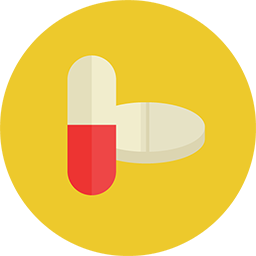
Headaches and Migraines
Nearly all headaches experienced by college students are Tension-type headaches (TTHs). TTHs may be caused by tightening muscles in the back of the neck and/or scalp. It is no surprise that these headaches are the most common type among college students as students are constantly sitting in strained positions (e.g., sitting in uncomfortable lecture chairs while hunching over a book to catch up on readings).
By Student Wellness CentreTension-type Headaches
Three Types of Tension-type Headaches
- Episodic: infrequent and random – less than one day a month
- Frequent – 1-14 days a month
- Chronic – more than 15 days a month
Symptoms
- Typically, a dull, aching, and non-pulsating pain on both sides of the head
- Head, neck, and shoulder muscle tenderness
- Pain that occurs in the forehead, temples, or the back of the head and/or neck
Triggers
- Stress and/or anxiety
- Fatigue
- Changes in sleep patterns
- Skipping meals
- Alcohol consumption
- Anger and/or depression
- Eye, neck, or back strain
Treatment
Episodic Tension-type Headaches
This type of headache can be treated with over-the-counter analgesics such as aspirin, Tylenol, Advil, or Aleve. If ineffective on its own, you can add a small dose of caffeine. A warm pack on the neck may also relieve the headache.
Frequent/Chronic Tension-type Headaches
See a health professional for diagnosis and consideration of preventive treatment such as amitriptyline (an anticonvulsant). They are used because they have an analgesic (pain killer) property. Some may be prescribed for those who have sleep disturbances.
Migraine Headaches
Genetics play a role in migraine headaches. If one of your parents suffers from migraines you have a 25-50% chance of getting migraines. That increases to 70% if both of your parents suffer from migraines. (webmd.com)
Migraine headaches can last from hours to days and frequency can vary depending on triggers.
Migraine headache symptoms may include: nausea, vomiting and sensitivity to light, noise, and odors.
Women experience migraine headaches more often than men. This may be caused by the woman’s menstrual cycle. 60% of female migraine sufferers can relate the attack to their menstrual cycle. (nhf.com)
Treatment
Initially, try to treat your migraine with an OTC pain (e.g., Advil or Tylenol) and an anti-nausea (e.g., Gravol) medication. If those do not work see a health care professional to discuss options. You may be prescribed triptans (to constrict blood vessels) or preventive medication like beta-blockers. Cold packs can be used on the forehead and temples. Apply for 15 minutes at a time with 15 minute breaks in between.
“Sinus Headaches”
“Sinus headaches” can refer to headaches caused by acute sinusitis (inflammation of the sinuses). These are associated with nasal congestion, nasal discharge, fever, pain, and tenderness over the affected sinus, with a deep dull ache that is exaggerated by head movements. A health care professional should be seen if you think you are experiencing a sinus infection as they will need to determine the proper course of action.
Cluster Headaches
Cluster headaches have severe, debilitating pain on one side of the head and are often present with a watery eye, nasal congestion, or a runny nose on the same side of the face. Cluster headaches appear suddenly and can recur for weeks or months, then disappear for months or years.
Treatment
Treatment for cluster headaches should be reviewed with a health care professional. They will start medication therapy as early as possible after the headache appears to reduce the length of the cluster period and decrease the severity of the headaches.
Medications can include corticosteroids and antiepileptics (anti-seizure). Over-the-counter (OTC) medications have little effect. These medications are slowly tapered off and then discontinued as the headaches decrease and disappear.
Tips for Headache Relief
- Take frequent breaks while studying to give your eyes, neck, and back a break.
- Use an ergonomic chair.
- Use a non-glare screen over your computer.
- Pain medications are more effective at the beginning, so take medication as soon as possible.
- Have caffeine in moderation (maximum: 400 mg per day) as caffeine withdrawal causes headaches.
- Consuming alcohol can cause headaches. To help reduce a headache caused by alcohol try these tips:
- Drink less
- Eat something or drink something high in sugar
- Hydrate with water
- Stay hydrated by drinking lots of water.
- Maintain regular sleep (at least seven hours per night).
- Eat a meal or snack every 3-4 waking hours.
- Practice deep breathing exercises, yoga, or meditation to help relax and relieve daily stress and anxiety.
- Have a neck massage to help with muscle tension.
- Monitor time spent in front of a TV/computer screen and reduce it if you are experiencing headaches.

